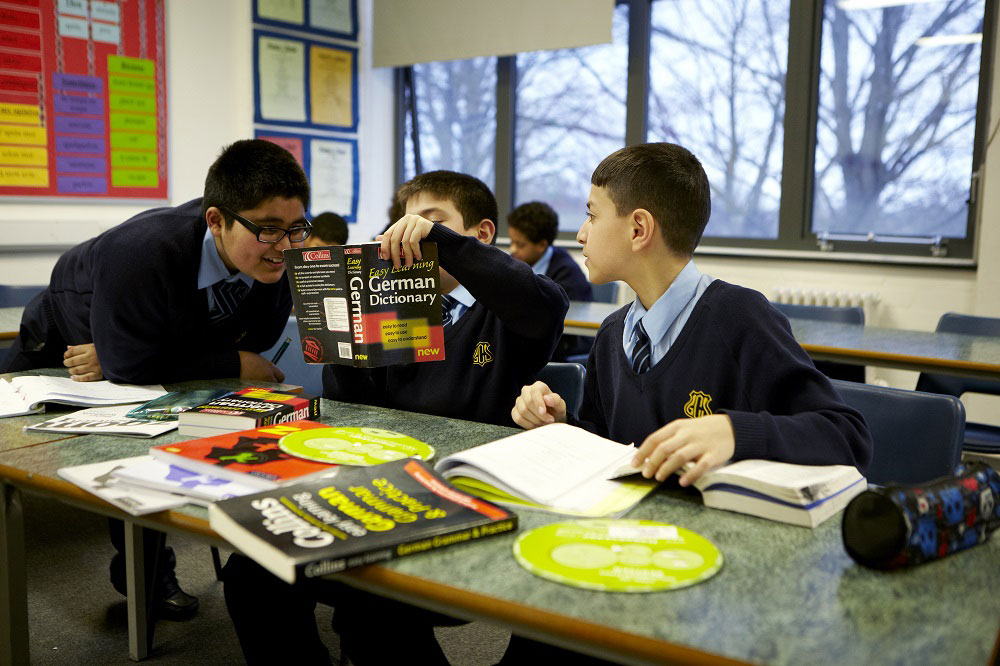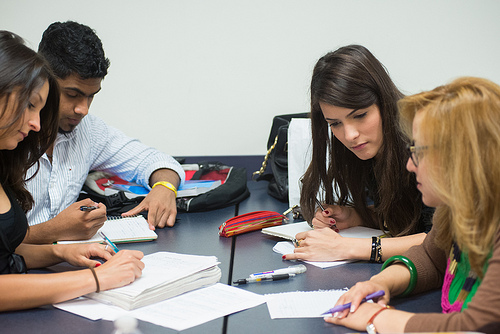Role of the Teacher
The role of the teacher represents a fundamental difference in the Language Futures approach. Whilst the teacher may be an expert linguist with a deep understanding of how languages are learnt, and therefore the strategies to be used to support this, in the Language Futures classroom he or she will not be the expert in all or even any of the languages chosen by the students. Instead, the role of the teacher is as a designer and facilitator of learning. Teachers create the conditions for students to manage their own learning processes and learn collaboratively with their peers in order to become more independent learners. Teachers also design projects that offer multi-faceted learning opportunities. They are expert advisors on learning to both students and mentors and responsible for setting up any assessment or student presentation opportunities.
Although making the shift to a Language Futures approach is not easy and may be a challenging prospect at first, particularly needing to let go of control over exactly what and how students are learning, teachers have found the experience reinvigorates their professional practice.
How is Language Futures different?
- languages teacher, not a teacher of a specific language
- role of the teacher in the classroom i.e. not simply a provider of language
- students learn alongside an adult who knows how to learn
- learners enjoy seeing the teacher also have a go e.g. at pronouncing Mandarin
- helps a teacher to remember what it’s like to learn a language
- trusting pupils with their learning
- re-thinking lesson planning i.e. how can I get students to achieve the lesson aim without giving them the language they need e.g. using other languages as a model
- more natural differentiation – students don’t feel they are catching up all the time or are finishing too quickly
- learning a lot from working with language mentors – often not the only adult in the room
- pupils teaching each other as well as teaching the teacher.



What teachers have said about Language Futures:
“The main difference between teaching mainstream language lessons and Language Futures lessons is that my role is that of a languages teacher, not a teacher of a specific language. It has been fascinating for me to take a step back and think about language learning more generally, rather than the finer details of a specific language. It means the lessons are more focused on developing students’ skills, for example, how to cope with unfamiliar language or what strategies can be used to learn.”
“As I know a lot less than the pupils about their chosen language, it completely changes the position of the teacher in the classroom. I enjoy learning alongside the pupils, who enjoy seeing their teacher have a go at Mandarin pronunciation, for example! Language Futures lessons remind me of what it was actually like to learn a language from scratch and help me understand the learning processes that students need to go through. Being part of Language Futures lessons has made me more patient and understanding as a teacher and has really made me re-think the way I teach in mainstream language lessons.”
''It’s hard work but very rewarding. The students are beginning to apply the skills they are learning in a range of different areas. Many of them are comparing the new language with the linguistic experience they already have; this is a really thrilling process to see.''
